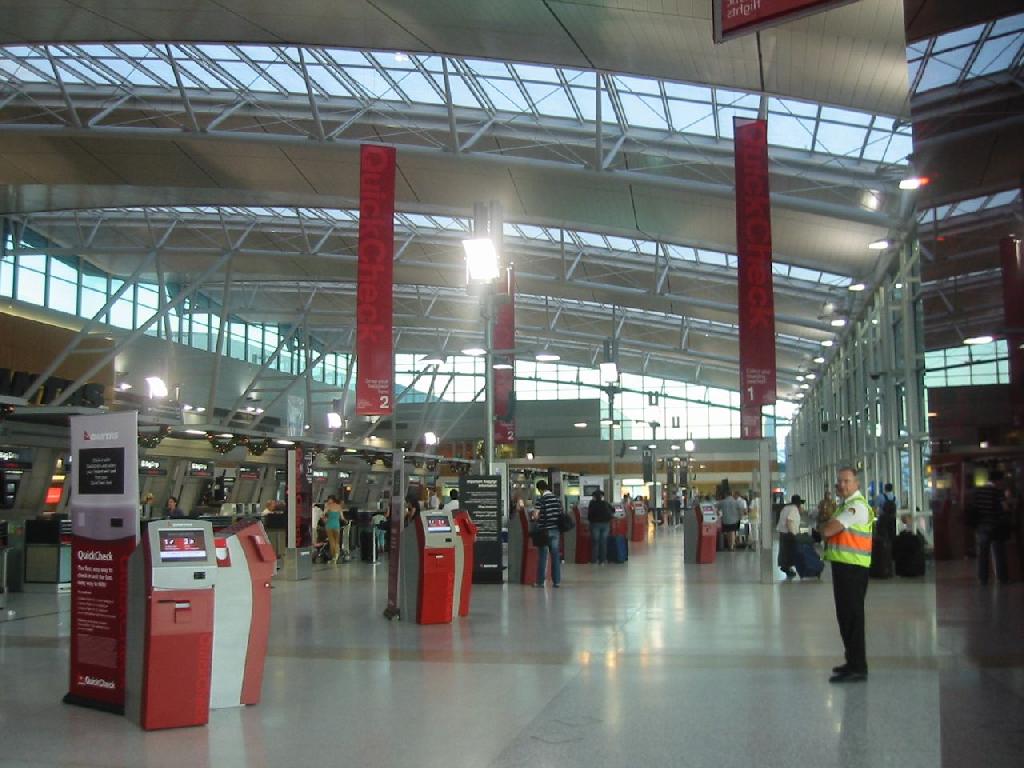International airport strikes by staff from the Department of Immigration and Border Protection (DIBP) over the Easter long weekend have been postponed after Prime Minister Malcolm Turnbull directly appealed to the Department’s union members not to strike in the wake of yesterday’s terror attacks in Brussels, some of which occurred at an airport.
At least 31 people died in a series of explosions in Brussels and around 200 were injured. The first two blasts occurred at the city’s Zaventem Airport in the north-east of the city centre, leaving 11 people dead and about 92 injured. Islamic State has already claimed responsibility for the attacks.
Community and Public Sector Union (CPSU) National Secretary Nadine Flood held a press conference this morning (Wednesday) to discuss the postponement of the 24-hour strikes, which were due to begin tomorrow, affecting all eight international airports in Australia and causing havoc for Easter holidaymakers.
Ms Flood said this morning: “We have agreed to Prime Minister Turnbull’s request to postpone these strikes in good faith and conscious of the understandable concern of travellers in the wake of the Brussels attacks. I should note that our members would never take industrial action that compromises Australia’s national security at this time or at any time.”
Ms Flood said DIBP officers working in counter terrorism, national security and intelligence roles had been exempt from industrial action over the two-year long campaign, adding: “we’ve worked closely with the department on that matter.”
The strikes are in response to the glacially slow process to get public sector enterprise bargaining agreements signed. The row over pay and conditions remains intense and the Union has estimated that around 80 per cent of Commonwealth public servants or 130,000 people are still without an agreement after almost two years.
She said the Prime Minister had refused to talk to the Union since last October and the government’s bargaining policy framework was forcing department’s to cut workers’ rights.
“The Prime Minister has said that Immigration and Border Force officers should pursue their concerns over their rights through other means from going on strike.” Ms Flood said. “The problem here is they don’t have another options. These officers are deeply angry and disappointed that after six months the Prime Minister has still given them no-one in government to talk to, no avenue to actually pursue these concerns, and they still face attacks on their rights and for a number of officers, cuts to their take home pay.
“That’s why they’re going on strike. That’s why this dispute needs to be resolved.”
Strike action by staff at the Department of Agriculture and those working in biosecurity at major airports was also suspended.
If Mr Turnbull refuses to make concessions it appears likely the strikes will be back on after the Easter detente and the Union may press ahead with its plans for rolling stoppages at airports over the Easter school holidays.
Ms Flood said: “Border Force and Immigration workers will not strike on Easter Thursday or over the Easter weekend. We will consider whether to take further industrial action next week – and in coming weeks – in the light of the Department’s and the government’s response in the coming days.”
Ms Flood said DIBP officers were “angry and frustrated” with the government but they recognised the importance of reassuring travellers and the Australian public was important, as was freeing up the Department to deal with issues arising from the Brussels attacks.
Staff from Human Services, Defence and the Tax Office, and a number of other departments, went on strike on Monday this week but Ms Flood said no further industrial action was planned by union members working in these areas at this point.
DIBP staff comprehensively rejected the government’s 6 per cent pay offer over three years earlier this month, with 81 per cent of voters saying “no.” Officers went on strike in June, July and September last year.






Leave a Reply